2023 / 2024

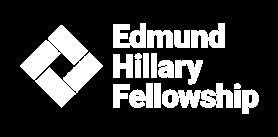

2023 / 2024



SIR EDMUND HILLARY personifies the essential human qualities of integrity, modesty, determination and service to others born of a life-time of exceptional achievement. He was raised in a quiet country town in New Zealand, and as an unremarkable schoolboy, he discovered a love for mountaineering early on. This passion ultimately led to him becoming an international legend as the first man to climb Mount Everest in May 1953, alongside Sherpa Tenzing Norgay. In the following 50 years he continued to lead expeditions to the most remote corners of the earth, but perhaps most tellingly, he devoted himself to environmental and humanitarian efforts that have made a profound difference to the Sherpa communities where his famous summit climb was achieved. In 2003, Sir Edmund and Lady June Hillary celebrated the 50th Anniversary of the ascent of Everest in Nepal, with Sherpa friends and the Tenzing family. In 2005, he formally re-embraced leadership development as the patron of the Excelerator: New Zealand Leadership Institute, and internationally through lending his name to the development of the Hillary Institute and its associated Laureate programme. Knighted by Queen Elizabeth II in 1953, Sir Edmund was
the recipient of numerous international citations including The Order of New Zealand, the country’s highest honour. He was awarded nine honorary doctorates and authored eight books. In January 2007, Sir Edmund returned to Antarctica for the final time for the 50-year celebration of his establishment of Scott Base for New Zealand. With Sir Edmund in honoured attendance, Prime Minister Helen Clark (as Patron) formally launched The Hillary Institute there on 22 January 2007. New Zealanders take great pride in this extraordinary, ordinary man, a world-wide symbol of courage, determination, leadership and humanitarian service. Sir Edmund passed peacefully in Auckland on the morning of 11 January 2008, and was accorded the rare honour of a state funeral on 22 January. 2019 was the centenary of his birth – a true legend who will forever be an inspiration to us all. The 70th Anniversary of Sir Edmund Hillary's and Tenzing Norgay's ascent of Mount Everest was marked on 29 May 2023 – a momentous occasion that was celebrated by Aotearoa New Zealand and communities around the world, including the Hillary Institute and Edmund Hillary Fellowship community who reflected on his values, achievements and legacy.
For a full biography of Sir Edmund Hillary visit www.hillaryinstitute.com
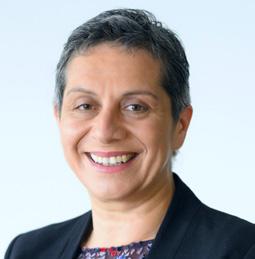
Ma te kotahitanga e whai kaha ai tātau
In unity, we have strength
There have been many significant shifts during the 2023/24 year – around the world and closer to home. Many of these shifts have been economic, but we have also seen increased conflict, and environmental impacts. These are some of the pressing challenges Hillary Laureates are grappling with year in and year out. Big challenges require equally big solutions, and perhaps the even greater challenge: they require action. Leading for action was a strong theme during the session with Hillary Laureate Aimée Christensen this year when she discussed how Aotearoa New Zealand could accelerate our decarbonisation journey, as part of our Impact Springboard event. While Aimée acknowledged there is no ‘silver bullet’ for economies to achieve net zero, she was clear on the need for action at all levels, and that we all have a role to play.
This theme has been captured in the book The Hillary Laureates: Climate Agency and Action, written by Hillary Institute Founder and Kaitiaki (Guardian) Mark Prain, which is due out later this year. The book shares what drives these remarkable leaders to create positive change in our world. Their contributions are truly outstanding. This year I have also seen a lift in recognition of the impact that Edmund Hillary Fellows are creating. Fellows’ work is resonating not only in Aotearoa NZ, but around the globe. In New Zealand, there is an increasing appetite to maximise existing talent (and an ecosystem call for
fresh talent) to help scale Kiwi businesses, power-up communities, transform high-potential sectors, and accelerate our innovation system. This report shares how EHF is already working to connect Fellows into this work and the value they are delivering.
Like Laureates, EHF Fellows are solutions-oriented and purpose-driven, and I am constantly struck by their capacity to get stuff done: in service to others. Sir Edmund Hillary exemplified servant leadership, humbly stating that his greatest achievement was not climbing Mount Everest but helping the people of Nepal. We see these qualities of generosity and sheer determination among Laureates and Fellows in how they help people and tenaciously tackle problems. It’s also what makes this group of changemakers and innovators such a unique and potent part of the ecosystem.
The Board’s vision is to continue to build stronger and more connections so that Laureates and Fellows can express and be recognised for the value they bring. The Board’s priority this year has been to ensure the Hillary Group had the necessary systems, structure, skills and support to shift towards an independent business model, particularly as our government contract for the programme finished in September 2023. While The Mission Studio model for systems change started with an important mission, the reality of the funding landscape required us to refocus and reprioritise resources – putting
• Respecting Te Tiriti o Waitangi (the Treaty of Waitangi) as the founding constitutional document of Aotearoa New Zealand;
• Respecting the cultural diversity of people and communities;
• Inspiring and enabling people and communities to reach their full potential and take ownership of their future; and
• Enabling positive social changes by building communities to create sustainable positive outcomes.

foundations in place to support the core strategy for the Fellowship to align with the mātāpono (principles).
In an intensive second half of the year, the team rolled out new tools and services, convened Laureates, Fellows and the ecosystem around critical challenges, and undertook a successful fundraising campaign. Thank you to Fellows and friends of EHF for the generous support – a vote of confidence in the potential for collective impact.
The Board is honoured to have had the ongoing manaaki (care and support) of EHF iwi partners, Te Āti Awa Taranaki Whānui, with Kura Moeahu. The team’s work with Matiu Tahi and Tamahau Rowe this year has highlighted future partnership opportunities and further ways EHF can honour Te Tiriti o Waitangi (Treaty of Waitangi).
We appreciate and value the ongoing support of the Hillary Institute Patron, former Prime Minister Rt Hon Helen Clark, our Hillary Summit Governors, and the Hillary whānau, including Peter, Sarah and Alex Hillary, and the late Lady June Hillary, who sadly passed away this year. The year was also marked by great sadness with the loss of the much-beloved EHF Fellow Rod Oram. Rod contributed so much to so many in the Fellowship and throughout Aotearoa New Zealand. He will be missed by us all and we will continue to honour his impressive legacy, which is also reflected on page 7.
In July 2024, we farewelled trustee/director Ian Short who returned to the UK, having provided valuable strategic support and led the Finance Sub-committee. The Board is currently considering the governance structure for EHF with a clear focus on better reflecting Fellow voices and needs in the governance and strategy.
The Board and I are honoured to serve in this governance role, strategically supporting Rosalie and the team, who have continued to show such commitment to this wonderful community of Laureates and Fellows. We are also incredibly appreciative of Mark Prain in his ongoing role as Kaitiaki and during a particularly challenging year for him personally – his own determination is truly admirable.
I am delighted to share this report with you. There is a lot to celebrate and reflect on – and much that will inspire – perhaps even, to take action.

Anna Kominik Chair, Hillary Institute and Edmund Hillary Fellowship

FROM THE CHIEF EXECUTIVE
As I reflect on this past year, I’m reminded of the Māori whakataukī (proverb) ‘E hara taku toa, i te toa, takitahi he toa takitini’: my strength is not as an individual, but as a collective. This was a theme of ‘Everest 70’ celebrations last year, commemorating Sir Edmund Hillary and Tenzing Norgay’s achievements. Sir Ed had often said that reaching the summit of Everest was only possible due to the efforts of many.
This has been a year of powerful transition. We have reset our foundations, funding and focus for this next stage. Our momentum and progress has only been possible because the team, Fellows, Laureates and the Board have leaned into each challenge (and there have been a few) with goodwill, humour, patience and huge generosity of time and resources. I am humbled and inspired by the support and grace shown.
For the Hillary Institute, this transition has been marked by the Laureate book that Hillary Institute Founder Mark Prain has written, which beautifully weaves together the Laureate stories, providing insights into their personal journeys as they wrestle with complex and seemingly insurmountable challenges. The Hillary Laureates: Climate Agency and Action – to be published in 2024 – is a celebration for all that has been achieved to date, and a chance to reflect on how we might reimagine the Laureate programme for the future in a way that honours the founding kaupapa (purpose).
EHF’s inflection point was our 7-year anniversary in September 2023, when we concluded our Global Impact Visa pilot with the NZ Government. There was much to celebrate – more than 500 innovators, investors and entrepreneurs have come through the programme: 70 Fellows have moved here; 112 have residency, and a further 190 are eligible to apply. We have seen support for underserved communities and regions, investment
into Kiwi startups, and mentoring of NZ founders in international markets. For every $1 of Government investment into EHF, an estimated $111 of direct economic impact has been delivered, and we expect this to amplify in coming years. In short, this is a success story that gives us a template for talent attraction into the future.
In the first half of the year, we also piloted ‘The Mission Studio’ programme, designed to identify and address key levers for systems change, beginning with climate. However, we paused the programme to focus on our foundations for growth – delivering the systems, scaffolding and support for Fellows to create impact, and testing a new, independent business model.
A huge milestone was launching our first Annual Donor campaign in November. In an incredibly tough economic environment, we received commitments that exceeded our target, with over 45 Fellows contributing overall, and 10 Anchor Donors committing sizable sums, accompanied by moving stories of what the Fellowship and commitment to Aotearoa NZ has meant to them.
This was our mandate to move forward – to continue to back Fellows on their impact journeys. In our role as enablers and amplifiers, the team created a new Online Hub, developed pathways into the ecosystem, supported purpose communities and curated events for Fellows to connect, be inspired and act. We convened Laureates, Fellows and NZ innovators together to showcase transformative ventures and discuss critical challenges, and highlighted Fellows’ outstanding impact through briefings, case studies and stories.
With the wisdom, mātauranga (knowledge) and guidance of Te Āti Awa Taranaki Whānui and te Kāhui Māori, EHF’s Kawa and Tikanga (protocols) were created and shaped. This was built on the Values Compass – a guide to being
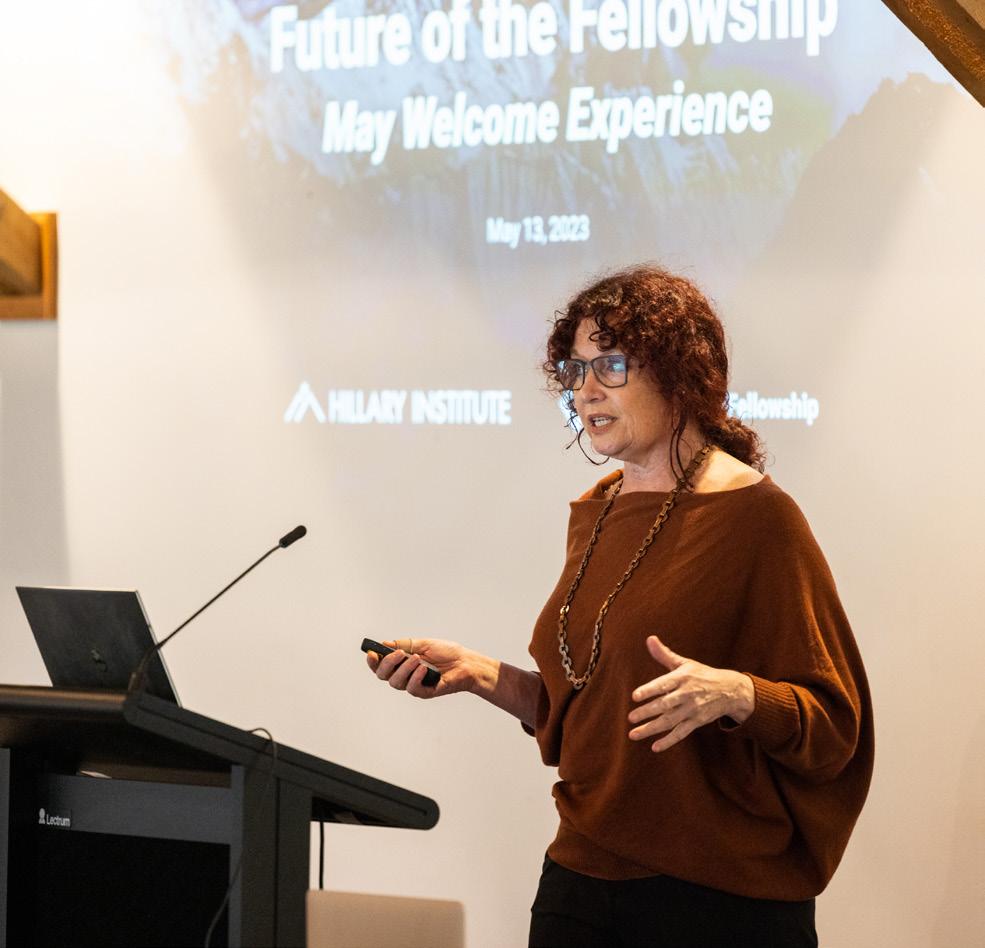
Tangata Tiriti (People of the Treaty) – that was crafted by Fellows a number of years ago. The result is a clear and unifying framework of our principles, protocols and practices that enable a place of safety and belonging, and a sense of value for all. I am incredibly grateful to Tamahau Rowe (Cultural Advisor), Dinnie Moeahu (Board member) and all of the Fellows who helped develop our kawa & tikanga, which is foundational to this next stage.
This was also a year of profound loss, with the passing of one of our national taonga (treasures) – Rod Oram, one of NZ’s foremost climate commentators and business journalists. As a founding Fellow, Rod had a huge influence on the Fellowship. He was also a friend, a leader, and a powerful voice for change: our challenge now is to pick up the mantle and honour his mahi (work).
It has been an action-packed year and I want to honour the resilience, incredibly hard work and passion from a small team and Board that has guided this waka, and the many, many Fellows who inspire and fuel our mahi with their passion, generosity and commitment to Aotearoa NZ.

Rosalie Nelson Chief Executive, Hillary Institute & Edmund Hillary Fellowship

Writing a book can be a solitary journey, but when it features 11 truly inspiring international leaders, it becomes an ongoing conversation that is richly layered and well worth having. As I enjoyed the challenge and deep privilege of developing The Hillary Laureates: Climate Agency and Action, each discussion focused on an authentic leadership story that models and enables great courage and ongoing action – no matter the odds or inevitable struggles along the way.
These Laureates exemplify what it means to act in service to humanity, and they highlight the power of stubborn optimism – in short, hope – despite the confusion, complexity and scale facing our beleaguered planet. This year Hillary Laureates have continued to shine. In February 2024 Johan Rockström was awarded the 2024 Tyler Prize for Environmental Achievement for his work on the Planetary Boundaries framework. Dubbed the ‘Nobel Prize for the Environment,’ Johan said it was “a fantastic boost and a recognition that we’re on the right track scientifically.”
Vanessa Nakate was an inaugural winner of the TIME CO2 Earth Awards in April 2023. Looking beyond the recognition, she used the occasion to urge us all to fully acknowledge loss and damage with the climate crisis disproportionately affecting communities in the Global South.
In March 2024, Christiana Figueres was awarded the Albert Medal by the Royal Society for Arts, Manufactures and Commerce (RSA), which recognised her extraordinary creative leadership on climate action. She referenced Johan’s work in her acceptance address: “What we choose today will become the dominant reality in the world of tipping points; tipping points in the earth’s system, but also tipping points in society.”
As progress towards stability and the health of our planet remains acutely fragile, it is heartwarming to see the Hillary Institute and EHF Board and Management work
towards a sustainable business model and future to unlock the collective impact potential of the Laureate and Fellow whānau (family). This globally connected community of passionate, purpose-driven people has the potential to lead not only the conversation, but the practical delivery of solutions to so many of the planet’s pressing issues – and further collaboration will demonstrate the consequent multiplier effect.
The 29th of May 2023 marked the 70th anniversary of the successful summiting of Mt Everest by Sir Ed and Tenzing Norgay. This momentous achievement was made possible due to a shared vision and teamwork. Ed always said that he didn’t get to the top on his own. His decades-long support for the people of Nepal – his work in the valleys – was what he considered to be his greatest achievement.
As I look at the global scale of climate change over the past decade, there are many strong beacons of hope made real by action. Rapid growth in renewable energies replacing fossil fuel-powered systems is one shining example of achieving results at a previously unanticipated pace and scale. We need much more public and private investment to rapidly accelerate these trendlines of common sense and common humanity, where everyone has a stake, and everyone sees the benefits.
As Sir Ed said, “People do not decide to become extraordinary. They decide to accomplish extraordinary things.” Laureates and Fellows are doing just that. This report celebrates those successes and holds up their outstanding contributions for us all to be inspired to act ourselves – to ‘decide to accomplish extraordinary things’.

Mark Prain Hillary Institute Founder and Kaitiaki/Guardian
Those who lead give sight to those who follow, those who follow give life to those who lead.
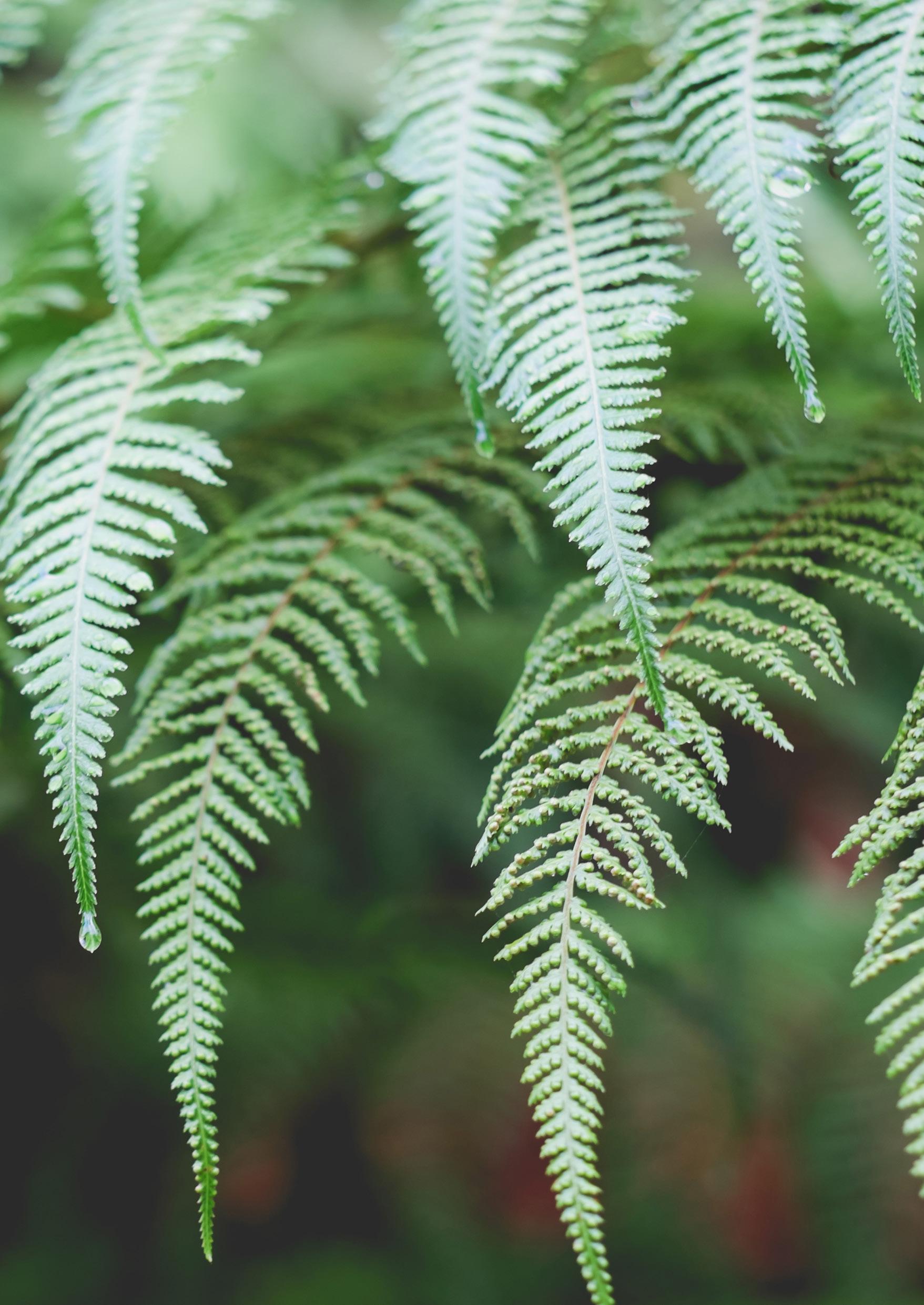

23 November 1950–19 March 2024
Rod Oram had a gift for making whoever he was speaking with feel like they were the most fascinating person in the world. He would tilt his head slightly, listening closely before responding. He could find delight in the smallest things.
Rod was a rarity – a journalist of luminous intellect with a passion for the planet who was highly respected across the political spectrum for his forthright views and kind, caring nature. Rod and his family moved to New Zealand in 1997 for his role as inaugural editor of the Business Herald. He was New Zealand’s leading commentator and credible voice around climate, and a man of faith who passionately believed in the potential of New Zealand.
In 2017 he was among the first cohort of Edmund Hillary Fellows welcomed into the Fellowship, given the name ‘Kawakawa’. He created a beautiful legacy, generously sharing his time, wisdom, and aroha (love) with the Fellow and Laureate community, and the EHF team. He embodied the values of Sir Edmund Hillary in his commitment to serve both people and the planet, and he championed the kaupapa (purpose) of EHF: Partnering with Aotearoa NZ to find and build solutions to our toughest challenges.
Sadly, Rod passed away on 19 March 2024 after suffering a heart attack while out riding his bike. He had been training for the final leg of his cycling trip of a lifetime from Beijing to Birmingham, the city of his birth. He was 73.
Rod’s strong Christian faith was in evidence at his funeral at Holy Trinity Cathedral in Auckland, which was packed full of love, laughter, beautiful music, and moving eulogies. His fellow Fellow Cheryl Reynolds delivered a heart-felt tribute to her dear friend.
Rod is survived by his wife Lynn, daughter Celeste, son-in-law Keir, a brother and sisters, and their families.
Rod will be fondly remembered and greatly missed by the EHF community. He leaves behind an inspiring legacy and a clear call to action.
“We’ve caused the Anthropocene. It’s entirely on us whether we figure out how to survive it. If we don't, the Earth will carry on, vastly changed, without us.”
2023 was the year in which we celebrated the 70th Anniversary of Sir Edmund Hillary and Tenzing Norgay summiting Everest, as well as Sir Ed’s profound legacy and values – living in service to others. In a year when Hillary Laureates made outstanding contributions to humanity and the environment, there was much for the Hillary Institute to recognise, celebrate, and share to inspire.
This year the Hillary Institute has focused on the development of the Laureate book, The Hillary Laureates: Climate Agency and Action, which recognises and celebrates ‘The First 11’ Laureates as transformative global leaders. Written by Hillary Institute Founder and Kaitiaki (Guardian) Mark Prain, the book carries the theme of the ‘Hillary Step’ leadership challenge – holding fast to purpose and maintaining ‘stubborn optimism’. The 11 chapters recognise Laureates’ outstanding contribution and is intended to inspire hope and agency by demonstrating change is possible: ‘If we put to work our full potential, to unlock the Hillary Step in all of us’. The book is planned for publication later in 2024. This time of reflection, and a focus on the integrated strategy and business model for the Hillary Institute and EHF means we have paused the identification of new Laureates, as we plan for the next chapter of the Institute.
During the year, the Hillary Institute and EHF delivered a series of in-person and online ‘Mission Studio’ climate workshops. These brought together leaders from Iwi, Government, industry, investment, climate action and social impact to engage around levers for climate action in New Zealand, particularly nature restoration. These workshops and events drew from Laureate-led models and thinking, such as Johan Rockstrӧm’s work on Planetary Boundaries.
Laureate Aimée Christensen gave a keynote talk for the February 2024 Impact Springboard, a series of online events for Fellows and the NZ innovation ecosystem, curated and hosted by the Hillary Institute and EHF. In her talk ‘Transforming New Zealand into a Low-Carbon Economy by 2050’, Aimée shared global climate trends and risks, case studies featuring innovative approaches, and thought leadership on how New Zealand could accelerate the transformation of its food system to significantly reduce its carbon emissions. See more on page 9.
The transformative work of Laureates was also celebrated, and shared in New Zealand and globally throughout the year, which included:
• Highlighting the calibre of Laureates in briefings and meetings with Government and stakeholders.
• Profiling via social media and stakeholder updates, Laureates’ successes and achievements, e.g. awards, new reports.
• Sharing and amplifying their work and advocacy through social media, e.g. COP28, International Women’s Day.
• Creating and sharing video content that showcases thought leadership, e.g. Meagan Fallone on tackling complex challenges.
• Drawing inspiration from Laureate Chrisitana Figueres’ views on ‘Stubborn Optimism’ for organisation-led optimism campaign.
• Highlighting the values and servant leadership approach of Laureates as part of the 70th Anniversary celebrations.
The Hillary Institute’s mission is to recognise, reward and nurture great leaders, currently in play, who are focused on solutions to the most pressing issues facing humanity such as climate change, poverty, disease, peace and justice. Our purpose is to celebrate and support those whose work can be amplified with peer support, leverage and goodwill.

Hillary Laureate Aimée Christensen shared fresh thinking on how Aotearoa can decarbonise and electrify systems in a keynote talk ‘Transforming New Zealand into a Low-Carbon Economy by 2050’. A highlight of the February 2024 Impact Springboard, the session attracted business leaders, government policy-makers, environmental organisations and Fellows, all eager to learn from Aimée’s expertise and experience as a renowned climate leader and strategist. During the keynote, Aimée shared her deep knowledge of global climate trends and risks, as well as case studies of innovative climate solutions she had led or advised on, which resulted in scaleable change and positive outcomes. Hillary Institute & EHF Chair Anna Kominik says that Aimée’s track record for thinking big, backed up by action locally and globally, makes her views and insights highly credible as well as inspiring. Aimée’s talk explored how Aotearoa NZ can responsibly manage its transition to meeting its 2050 net zero commitments in ways that affirm economic, environmental and social benefits. She pointed out that Aotearoa NZ’s actions currently are rated as insufficient to meet targets, as are many Western economies, and that the country’s food system is a significant contributor to its greenhouse gases. Aimée outlined how creating ‘a resilient food future’ in
Aotearoa NZ is an economic and trade imperative – not just an environmental driver – that needs action now. Compounding her argument, she referenced Hillary Laureate Johan Rockström’s identification of the global food system as the ‘largest economic sector driving the transgression of planetary boundaries.’
As well as outlining the compelling drivers for change, Aimée focused on solutions and New Zealand’s strengths. She proposed that NZ’s food system transformation could be accelerated through investing in innovation, shifting government resources toward community resilience, indigenous knowledge, and assessing risks and assets. Aimée emphasised that Aotearoa NZ has the potential to lead by example on the global stage, using its food system as a model for innovation, saying:
“I really do believe that New Zealand could be this incredible global testbed for global food and farm solutions – really an exciting potential there, but it needs collaboration among all the parties.”
Through this session, Aimée laid down an inspiring wero (challenge) to Aotearoa NZ – to seize its potential to be a global leader in food system transformation, and accelerate its journey toward a low-carbon economy.

The 11 Hillary Laureates are exceptional transformative leaders who share a deep sense of social and environmental purpose driving their work. They are determined to create impact at scale and radically shift the dial on global challenges – from climate change to peace and justice. As humanitarians they care, they speak up, they inspire, and they act. This report shares three examples of Hillary Laureates’ commitment and achievements during 2023/24.
Visit www.hillaryinstitute.com for all 11 Laureate stories

“Thinking about the economy through the lens of care allows us to think about each other, our relationships with each other, the strength of our communities, the importance of addressing inequality, the investment in our healthcare systems, the investments in social care. It allows us to think about the economy from first principles, from that simple idea that without health there is no wealth.”
2016 Hillary Laureate Tim Jackson speaking with Jesse Mulligan, RNZ (Radio New Zealand) on the need to think differently about prosperity, 10 July 2023.
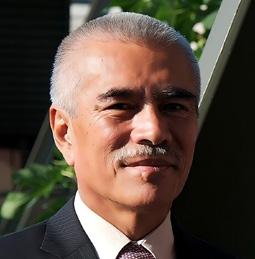
2012 HILLARY LAUREATE
The existential threat of climate change, which could render low-lying island nations uninhabitable by 2060, continues to drive Anote Tong’s advocacy for urgent climate action. This year has seen Anote actively urge Australia to implement more decisive measures to stop the approval of new coal and gas exports, given its proximity to vulnerable Pacific Islands. “Australia needs to work with the Pacific Islands to get serious about combating climate change, and that means halting new coal and gas projects. The Pacific Islands are on the frontline of the impacts of climate change. No one is better placed to show us the effects of an unmitigated fossil fuel industry. If we can’t heed this warning from first-hand witnesses, then we are entirely complicit in what comes next,” said Anote, former President of Kiribati, during a speaking tour of Australia in March 2024.
During his address at Australia’s Climate Integrity Summit in March 2024, he highlighted the critical importance of global cooperation in addressing climate change, drawing attention to the immediate and severe impacts faced by island nations like Kiribati, Tuvalu, and the Marshall Islands. He questioned the responsibility of political leaders in wealthy countries who continue to support fossil fuel industries, despite knowing the detrimental effects on vulnerable communities. In the address, Anote said, “Climate change needs to be understood that it’s not in 2060 that things will suddenly happen. They are happening now. All that’s going to happen is already happening. It will get worse, more intense and it’ll become more frequent, until the day when the tides will come in, and will not go out.”
During the year, Anote's advocacy work took him to Europe and North America, where he engaged with international leaders and climate activists. At the UN Climate Change Conference in Bonn, Germany, he participated in panel discussions on climate-induced migration and adaptation strategies, championing the concept of ‘migration with dignity’ for people displaced by climate impacts. His speeches and interviews, including notable appearances on ABC's Pacific Beat and Big Ideas programmes, brought widespread attention to the plight of Pacific island nations.
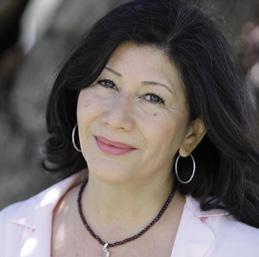
Atossa Soltani is an influential voice in the battle to protect the Amazon rainforest and uphold Indigenous rights. As the Director of Global Strategy for the Amazon Sacred Headwaters Alliance, she leads efforts to protect 86 million acres of rainforest in Ecuador and Peru. This alliance focuses on creating a protected region free from industrial-scale resource extraction, emphasising indigenous stewardship and ecological integrity.
In January 2024, Atossa represented the Amazon Sacred Headwaters Alliance at the World Economic Forum, participating in high-level panel discussions about indigenous leadership in protecting the Amazon rainforest. She emphasised the critical role of indigenous knowledge and practices in safeguarding biodiversity, advocated for the recognition of indigenous peoples' rights in sustainable development, and called for economic models that prioritise both environmental health and community wellbeing. In an interview with CNBC Africa, Atossa said, “We need to change the financial architecture to encourage countries who are guardians of the world’s biodiversity and rainforests to have economic incentives to not cut it down. We need to change the subsidies from fossil fuels to restoration and reforestation, to renewable energy. Right now, countries are focused on GDP growth – if we could change that to be about quality of life, the wellbeing of humans, wellbeing of communities, wellbeing of families – if we could change the logic from growth to wellbeing, we could change the system.” Atossa also received the Schwab Foundation Collective Social Innovation Award during the Forum, in recognition of her work with the Amazon Sacred Headwaters Alliance.
During 2023 New York Climate Week, Atossa helped to integrate indigenous perspectives into global climate and biodiversity discussions, in an effort to ensure inclusive approaches to climate action. She advocated for holistic strategies that balance ecological sustainability with community wellbeing, to foster a future where both people and nature can thrive together.
Atossa is currently producing her first feature-length documentary film titled The Flow, which explores learning from ‘nature’s genius’.
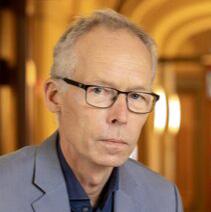
Johan Rockström’s groundbreaking work on the Planetary Boundaries framework continues to profoundly influence international climate policies, drive essential discussions on environmental sustainability and prompt critical policy changes. In April 2023, he was recognised as one of TIME Magazine's 100 Most Influential People of 2023, acknowledging his huge impact in advancing climate science and shaping global environmental discourse.
During 2023, Johan introduced the ‘planetary commons’ framework, which builds on the Planetary Boundaries concept to focus on the governance of Earth’s vital systems as shared global resources. The new framework emphasises the need to protect and sustain resources like the atmosphere, oceans, and biodiversity, advocating for a holistic management approach that acknowledges the interconnectedness of ecological systems and human societies.
Johan said, “Science clearly shows that the planet is in peril, and we must become active planetary stewards to ensure that all Earth system functions remain intact and continue to be available for all. The planetary commons framework offers a valuable opportunity to craft protective measures for those Earth systems not falling under the protective umbrella of existing global commons and their governance regimes – for things such as the Amazon rainforest that lies within and across the boundaries of several states.”
Johan also co-authored an updated assessment of the Planetary Boundaries framework, revealing that Earth is exceeding its ‘safe operating space for humanity’ in six of nine critical measurements, with two additional boundaries showing deterioration. The update was an opportunity for Johan to reiterate the immediate need for global action to combat environmental degradation, reinforcing his leadership in this field.
In recognition of his significant achievements, Johan was awarded the Tyler Prize for Environmental Achievement, often referred to as the environmental Nobel Prize, in February 2024. The accolade celebrated his leadership in developing the Planetary Boundaries framework and his continued efforts to address pressing global environmental challenges.


The 2023/24 year was filled with a fresh wave of connections, collaborations and impact creation. As many Fellows completed their welcome experiences and induction in 2022/23, their focus this year shifted to finding partnerships and new opportunities with other Fellows, Kiwi businesses, Māori organisations, and innovators.
This section shares some of the new and continued value that Fellows delivered for Aotearoa NZ’s innovation system and businesses, their support for regions and communities across the motu (country) and how they showcased Aotearoa NZ as a basecamp for a better world.
Fellows have a unique place in our ecosystem – deep knowledge on what it takes to build, scale and fund cutting-edge innovation globally. They have built new ventures and helped startups to scale, attract funding, and connect into global markets and capital, addressing a critical gap in our innovation ecosystem. They bring skills in high-value sectors such as aerospace, AI, gaming, renewable energy, blockchain, and biotech. The following are just some examples of Fellows’ impact.
Fellows are supporting Kiwi businesses to break into international markets. Using his extensive experience and connections in the healthtech and SaaS markets, Mohan Nair has invested in Kiwi startups, mentored CEs, advised three VC funds on healthtech investment and designed US goto-market strategies for a range of Kiwi startups, as a NZTE Beachhead Advisor and through his NZ-based networks. He has connected US healthtech leaders with NZ businesses to explore partnership opportunities, and has actively championed Aotearoa NZ in keynote presentations as a leading place for innovation.
Trevor Squier, Kelly McGonigle and Sara Sutton catalysed a multi-day US induction for seven Kiwi startups planning US market entry, in partnership with the Angel Association. They coached founders, organised events and facilitated connections for the Angel Association NZ delegation to
Denver/Boulder in the US, led by Bridget Unsworth. Using their networks and expertise, they arranged for the Kiwi founders/CEOs to participate in the Global Landing Pad (GLP) programme by the Denver Economic Development & Opportunity initiative, where they engaged with other entrepreneurs from around the world and received a crash course on how to establish a footprint in the Denver/ Boulder area. Each NZ business participated in a pitch session with Rocky Mountain Ventures, and attended an angel investor panel featuring Fellows Yoav Lurie and Sara Sutton alongside other local entrepreneurs and investors such as Techstars and Boulder Ventures. They also arranged an interactive workshop with prominent US founders, to allow the Kiwi companies to dig deeper into go-to-market strategies. By facilitating on-the-ground connections and helping build local market knowledge, these Fellows have laid the groundwork for potential investment and growth for these Kiwi startups.
Fellows have attracted millions of dollars of capital to Aotearoa NZ for early-stage Kiwi companies to go global, and directly invested significant sums. While in-depth impact research has not been undertaken this year, the examples below demonstrate sizable investment into Aotearoa NZ, based on just a small sample of Fellows.
Anthony Lee’s investment firm Altos Ventures, alongside another Silicon Valley-based firm, led Series A funding raising NZ$21.6 million (US$13.5m) for Tracksuit, a NZ-based global software company seeking to expand. See more on page 22.
Andrew Wilkinson’s Canadian-based investment company Tiny acquired a majority stake in NZ-based Letterboxd, investing around NZ$58 million into the film social media site. The founders say Tiny will provide both the capital and expertise to help during a significant growth period.
Rob Reid, through his fund Resilience Reserve, LLC, invested NZ$7 million in Auckland-based startup Mint Bio, the world's first company to use natural biomass and smart chemistry to extract green metals from waste commercially.
Mark Bregman’s Quidnet Ventures invested NZ$1.14 million into NZ companies, including, Aider, Litmaps, Amy AI (led by EHF Fellow Raphael Nolden), and Advemto. Quidnet is supported by Fellows, including Mohan Nair as a limited partner, Trevor Squier as an advisor, Mayank Malik and Benedict Perez as advisors/investors and Fellows Sara Sutton, Teruhide Sato as investors.
The NZVC fund with co-founding partner Mark Pavlyukovskyy, and venture partners Vishal Chaddha and Rich Bodo, with limited partners Jaan Tallinn, Naval Ravikant and Sean McGrail, deployed NZ$1.1 million into NZ companies. These funds have helped support companies including VXT, Menuaid, Squareone, Carbon Crop, Cupla, Upstock, Sugar Limited, Aimer, and Miruku.
Satya Dontamsetti has invested NZ$290,000 into several Angel/VC funds, and a further NZ$290,000 directly into NZ businesses in recent years. This year, he invested NZ$50,000 as a limited partner into the Enterprise Angels Fund 4, which has funded NZ fintech company Emerge (formerly SquareOne) and biometric tech company Realaml, as well as NZ$16,000+ into Fellow Siddharth Sthalekar’s Neighbourhoods Foundation. Satya also introduced Rajesh Kurup to Enterprise Angels, who committed NZ$50,000 into the same fund, and connected Enterprise Angels to Hyderabad Angels in India, to explore opportunities to invest in each other's funds.
Three experienced investor Fellows Kirsty Reynolds, Sean McGrail, and Mark Bregman launched the ‘EHF Friendly Sharks’ monthly sessions, providing free mentor hours for founders. The sessions allow startups to present their ideas, hone their value proposition, practise their pitch and seek advice to increase their chances of securing funding.
Sean McGrail also shared his globally successful entrepreneurial expertise alongside Mohan Nair at the Angel Association NZ Summit in February 2024. Focused on readiness for the US market, they outlined the distinctive value propositions of NZ startups and the importance of leveraging global knowledge to enhance their growth potential.
At the same summit, Kaye Maree Dunn shared challenges Māori and Pacific founders face, and encouraged attendees to explore pathways for creating intergenerational wealth and prosperity for Aotearoa NZ. See more on page 24.
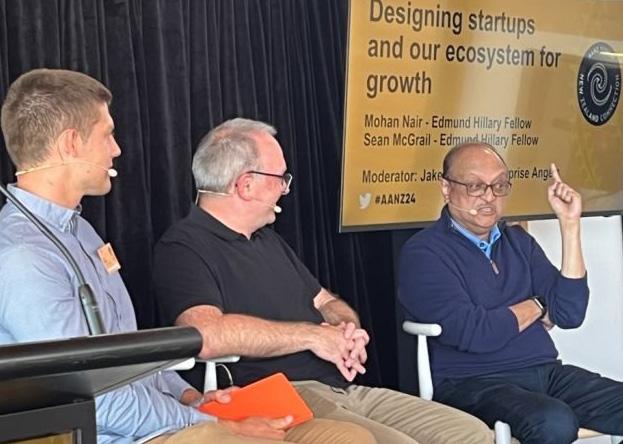
With extensive experience in venture-building and leveraging tech for impact, Vishal Chaddha mentored and advised NZ founders in early stage ventures, through Lightning labs by Creative HQ, Ministry of Awesome, and as Mentor-in-residence at the University of Auckland.
Yonggang Wang has used his deep knowledge of AI, and his China and US connections to build NZ businesses’ understanding of the technology and these markets. An advisor for Icehouse Ventures, he has mentored Kiwi startups including assisting with seed funding and introductions to potential investors. Yonggang also shared AI technology trends and business directions at the China Business Summit in Auckland, September 2023.
Shama Skinner has played an advisory role with KiwiNet, providing strategic support on commercialisation pathways for New Zealand’s scientific discoveries. She is also a Board Director for Take2 – the social venture supporting justice-impacted individuals, alongside fellow Fellows Cameron Smith (Take2 founder) and Marco Morawec
Boyd Multerer, founder and CEO of Kry10, based in Wellington, is positioning Aotearoa NZ as a hub for cybersecurity innovation. Kry10 secured NZ$6 million in funding (as reported in Feb 2024), and is poised to revolutionise cybersecurity for connected devices controlling mission critical infrastructure in sectors such as transport and renewable energy. Lovina McMurchy, as Kry10's Chief Operating Officer, facilitated the successful fundraising efforts with strategic backing from Folklore, Rotomā, and intelligence agencies such as In-Q-Tel.
Sahar Izadi, Farmehr Farhour, and Arash Tayebi, cofounders of NZ-based Kara Technologies are transforming accessibility for the Deaf community through AI-powered
avatars delivering real-time sign language content. They expanded their reach, making everyday interactions such as Zoom calls, educational materials, and streaming services more inclusive. They partnered with Australian Red Cross Humanitech to pilot AI-generated AUSLAN (Australian sign language) messaging to ensure inclusion during humanitarian activities when physical translators are unavailable.
Jeff Schlichting and Tim Derrick, co-founders of Helios Energy, are progressing a number of grid-scale solar projects that will support NZ’s economy, energy market and climate commitments. In September 2023 Helios announced plans to seek resource consent for a 300-megawatt solar farm on the Māniatoto Plain in Central Otago, as part of a development pipeline of approximately one gigawatt (1GW) across the country, representing approximately $1.5 billion of capital investment. Jeff said the planned project in Central Otago will generate enough clean, renewable electricity to power the equivalent of around 70,000 homes annually, helping to meet future energy demand and complementing the region’s strong hydro generation.
Matthew Jackson and Harmaan Madon of Alimentary Systems announced plans to develop a Bioenergy Resource Recovery Plant (BRRP) in Bell Island, Nelson Tasman. Harmaan brought the patented technology to Aotearoa NZ – a circular system that processes all organic waste, combining the carbon and nitrogen to create bioenergy and valuable byproducts to recoup costs. As well as reducing emissions, diverting organic waste and sludge into the BRRP facilities will deliver regional benefits, such as delaying the need to build costly new landfills.
Matthew also represented NZ’s clean water entrepreneurs at the United Nations Development Programme's Archipelagic and Island States (AIS Forum) in Bali, Indonesia. Matthew used Alimentary Systems to help showcase NZ's innovative approaches to environmental conservation, particularly in water management and waste reduction.
Philipp Sueltrop, Chief Technology Officer and Daniel Price, Chief Scientist are part of the boundary-pushing team at Kea Aerospace, creating sustainable aerospace technology with the country’s first solar-powered stratospheric aircraft. In July 2023, Kea Aerospace’s Atmos Mk1 completed its first Beyond Visual Line Of Sight (BVLOS) test flight at Tāwhaki National Aerospace Centre, marking a significant milestone for the company. Philipp and Daniel are passionate about enabling the collection of high-value data to monitor and understand environmental health – 65,000 ft from the earth – and with the Kea Aerospace team, they are advancing the development of stratospheric flight – from Aotearoa.
Michael Tchao, Lisa Nelson, Chuck Chai, Michael Sims, and Anthony Lee contributed to discussions on economic and tech collaboration between Aotearoa NZ and the US at an NZTE event in San Francisco, hosted by Anthony Lee at his Altos office. Fellows met with the New Zealand Ambassador to the US, Bede Corry and shared thinking for how Aotearoa NZ could raise its profile as an innovation nation, supporting potential economic and innovation opportunities. It provided a forum for networking, discussing investment opportunities, and knowledge sharing. Ambassador Corry also received a tour of Apple HQ, courtesy of Michael Tchao (VP of Products at Apple).
Fellows Justin Kan, Amitt Mahajan, Riana Shah, Lane Rettig, Rob Reid, Julia Bossman, Chris deCharms, Jon Lee and Sam Ng shared their expertise on pivotal topics shaping the AI landscape in a series of free online sessions with facilitators Chris Gagné and Jade Tang-Taylor. Aimed at the NZ ecosystem, Fellows discussed safeguarding security and privacy in the AI World, envisioning the impact of Generative AI on New Zealanders, and uncovering strategies for gaming companies and startups to leverage Generative AI. This provided Kiwi businesses, government and industry an opportunity to hear cutting-edge thinking from leading AI experts and market leaders around the world.
Doug Steiner is championing Aotearoa as a great place to grow innovation and live through media stories and speaking engagements in New Zealand and internationally. Doug and his wife, Jasmine Herlt, facilitated and are financially supporting a global education partnership between Nelson Marlborough Institute of Technology and George Brown College in Toronto, Canada. The long-term goal is to support partnered accreditation in various education fields from both institutions. Doug has also taken up a Fellowship at the University of Canterbury Business School and has taught a designed course on innovation behaviour to MBA students. He is currently collaborating in a large scale behavioural and economic research project with academics in the US and Canada.
Since launching their not-for-profit consultancy SpaceBase in NZ in 2017, global space sector experts Emeline Paat-Dahlstrom and Eric Dahlstrom, along with Rich Bodo, Usman Iftikhar, and Amarit Charoenphan, have elevated Aotearoa NZ’s aerospace and space profile, through education, training programmes, and challenge competitions. Their 2023-24 Space for Planet Earth Challenge invited young innovators from NZ, Australia, Pacific Islands and the Philippines to leverage space technologies to tackle methane emissions, making space ‘more accessible’. In addition, Emeline and Eric champion Aotearoa NZ’s burgeoning space industry on the local and global stage.

Our purpose is to partner with Aotearoa NZ to find and build solutions to our toughest challenges. Our vision is that Aotearoa NZ inspires global leadership and solutions for future generations, built on principles of Tangata Tiriti and values of Sir Edmund Hillary.
Many EHF Fellows are passionate about making a meaningful difference for communities and te Taiao (nature) in Aotearoa NZ by addressing systemic social and environmental issues. The following are just some examples of Fellows’ impact.
Rangatahi
Sarah Grant and Kia Kotahi Ako (an alliance of EHF Fellows) piloted their hands-on STEM learning project We Share Solar, engaging with students at a Taranaki kura kaupapa (Māori-language immersion school). The project included building solar panel kits and integrating a Māori approach to create equitable solutions, enhancing students' and whānau (families) understanding of solar power and climate change.

Aya Miyaguchi, executive director of the Ethereum Foundation, supported NZ youth through her donation to The Wellbeing Protocol, which helped to launch The Rātā Rangatahi Fund. The fund provides opportunities for young people in Aotearoa NZ to engage in local food production, climate healing, and community development.
Shoaib Iqbal initiated climate change education with tamariki (children) and rangatahi (youth) in Aotearoa NZ through arts and technology. Building on his global platform, The Little Art, he launched reEarth Studio NZ to empower young people to engage in sustainability via creative expression in art, design, and technology, helping them to address global challenges and become advocates for change in their communities.
Faumuina Felolini Maria Tafuna’i worked with Māori and Pasifika youth through her ‘Wayfinding for Life’ programme and the Waka Hourua Hinemoana initiative – sailing on a replica traditional waka. This provided firsthand experience of traditional navigation techniques and the values embodied in these voyages – courage, teamwork, and respect for nature.
Jase Te Patu founded Hauora Aotearoa, a kaupapa Māori mental health charity based in schools, to foster resilience and emotional intelligence and create an overall sense of wellness. Incorporating mātauranga Māori (Māori knowledge), the programme addresses the escalating mental health issues faced by students and teachers in schools and has received support and funding from several Fellows including mental health advocates, Tim Ferriss and Justin Milano.
Maya Soetoro and Zelda Keller, co-founders of the Institute for Climate and Peace, launched the Pacific Partnership Hub to facilitate the exchange of climate knowledge and indigenous wisdom among Aotearoa NZ, Hawai‘i, and other Pacific nations. The platform fosters culturally responsive strategies and community-led solutions to enhance climate and community resilience.
Lily Stender and Scott Miller supported 10 Māori businesses in Tolaga Bay, and further afield, through the Tolaga Evergreen Fund. The fund provides financial support through seed loans with hands-on mentoring, nurturing indigenous entrepreneurship and contributing significantly to local economic and community resilience.

The ‘Slash for Cash’ project, led by Thabiso Mashaba and Lily Stender, is supporting the Tairāwhiti and Wairoa regions by converting wood debris – washed down from forestry areas during Cyclones Hale and Gabrielle – into organic
biochar fertiliser and smokeless charcoal briquettes, which are then sold to local businesses. The initiative is generating employment opportunities, enhancing community resilience and promoting sustainable environmental practices.
Jarek Beksa and Sara Chin have made significant impact with their startup Sonnar, by advancing accessibility technology from Aotearoa NZ. Their innovative solutions are breaking down barriers for individuals with vision impairments and reading disabilities, transforming access to gaming and reading, thereby expanding opportunities for these communities.
Annie Ualesi, co-founder of CALLED Ltd, is delivering systemic, long-term solutions alongside communities to reduce inequities. Annie co-designed solutions with the Samoan community and health sector to address rheumatic fever, an initiative commissioned by Health New Zealand – Te Whatu Ora. She also designed and facilitated a series of workshops providing personal and professional development for women across the Pacific Public Service – Fale Women in Leadership Programme (Te Kawa Mataaho Public Service Commission).
Erin Jackson helped to advance gender equity and improve healthcare through her work with Project Gender. She was involved with forming the vision of Aotearoa NZ’s first-ever National Women’s Health Strategy, and championed the needs of single parents with the ‘Mako Mama – Mangopare’ report. She also advocated the need for systemic support and investment in women’s initiatives at the 'Fund Female Founders'.
Cameron Smith, founder of Take2, scaled his transformative coding programme into Australian prisons, expanding from its success in Aotearoa NZ. Take2 provides incarcerated individuals with web development training and ‘a second chance at life’. Many of Take2’s graduates have gained employment with leading IT companies – demonstrating the programme's efficacy in breaking cycles of incarceration and unemployment.
Petr Lom and Corinne van Egeraat premiered the documentary Ko au te Awa, ko te Awa ko au – I Am the River, the River Is Me at the Movies That Matter film festival. The film highlights the significance of the Whanganui river's legal recognition and its role in sparking the global rights of nature movement. The result of a four-year collaboration with the Māori community in Whanganui, it emphasises the urgent need to protect the planet for future generations and is resonating with communities in NZ and around the world.
Satya Kumar, Vishal Chaddha, Siddharth Sthalekar and Andrew Hewitt along with a number of other Fellows are developing a new initiative to unlock capital for communities in the Asia-Pacific Islands region to address urgent climate challenges. The Climate Impact Fund for Asia Pacific Islands (CLIMAP) is designed to support community-led climate projects, and explore innovative finance models to address barriers to climate finance. CLIMAP’s focus is on investing in projects related to climate mitigation, adaptation, regenerative agriculture, and ocean conservation to support local and global communities.
Siddharth Sthalekar’s Neighbourhoods Foundation, based in Aotearoa NZ, uses Web3 tools to boost community coordination and cultural data recording, assisting ground-up responses to global crises. Neighbourhoods partnered with CLIMAP to bridge the gap between global capital and local communities through Neighbourhoods' data-driven approach, while ensuring data sovereignty and community ownership throughout the process.
Simone Woodland progressed the development of the Tākaka Co-Housing Project. The sustainable ecovillage in Golden Bay is designed to cultivate deeper connections with both neighbours and the whenua (land). Since its inception, the project has received financial support from several Fellows, with five Fellows currently living in the first neighbourhood, and others interested in joining the next phase.

“People do not decide to become extraordinary. They decide to accomplish extraordinary things.”
Sir Edmund Hillary

Illustrating how strategic investment can propel Kiwi companies onto the global stage, Anthony Lee played a leading role in securing capital in one of Aotearoa NZ’s largest Series A funding rounds for a NZ-based company.
Anthony’s investment firm Altos Ventures, along with Silicon Valley-based firm Footwork, led Series A funding which raised NZ$21.6m (US$13.5m) for Tracksuit, a NZ-based global software company revolutionising the way that brands track and build customer experience. When the raise was announced in February 2024, Anthony emphasised Tracksuit’s potential for long-term, sustainable growth.
“Tracksuit has created a simple, beautiful solution to a very real problem, and we’ve heard from many customers who love the product. We were impressed by their early traction across four markets, all while being super efficient and maintaining a bootstrapped mindset.”
Altos Ventures’ investment in Tracksuit was sparked by Anthony’s visit to Aotearoa NZ in 2023, and is an example of EHF Fellows enabling Kiwi startups to scale globally. Beyond providing financial backing, Anthony joined Tracksuit's Board to offer critical guidance as the company
expands into the US market. Co-founder and Co-CEO Matthew Herbert emphasised the essential role of the strategic investment in driving the company's growth, stating, "The funding, coupled with our partnership with the Altos Ventures team, accelerates our plans to democratise brand marketing data and market research."
Anthony's support of the New Zealand startup ecosystem is further demonstrated by his personal investments in several NZ-based seed funds. During EHF’s ‘Going Global’ Impact Springboard session, he spoke about his belief and confidence in New Zealand's entrepreneurs. “People find opportunities, and that is what is starting to happen, with what I can see, in NZ. It feels like the ecosystem is at an inflection point. There are companies and founders coming out that have the sophistication and ambition to build something just as good as what we see here in Silicon Valley.”
Anthony’s investment and hands-on support for NZ companies like Tracksuit are helping to elevate Aotearoa NZ startups onto the global stage, and showcase just how impactful support from Fellows can be to drive growth and international success for Kiwi innovators.
altos.vc

Tim Hawkey & EnergyBank
Renewable energy solutions are on the rise in Aotearoa NZ, however the variability of intermittent generation presents a critical challenge: how to store excess energy for later use to smooth out fluctuations. EHF Fellow Tim Hawkey is addressing this challenge through EnergyBank’s next generation of energy storage technology, supported by fellow EHF Fellows Geoff Sharples, who sits on the commercial advisory board, and Aaron Bird, who connected Tim with Version One, one of EnergyBank’s key investors. Tim says: “Economically storing renewable energy for longer periods of time remains as one of the last technology challenges in competitively decarbonising our electricity systems.”
EnergyBank carefully analysed where it could make the most significant impact in the renewable energy sector. With rapid growth in the global offshore wind industry, the company shifted its focus to develop technology that maximises the potential of wind power. Tim explains that compared to solar supplying 2% of US electricity generation, as an example, wind power currently supplies about 10%, is highly scalable, has the highest capacity factors among intermittent renewables, and offers the largest value proposition for long-duration energy storage. In simple terms, the EnergyBank storage solution uses excess energy from a wind turbine to
compress air in a riser pipe and store it in pressurebalanced reservoirs near the ocean floor. When needed, the stored compressed air is released back through the same riser pipe and converted into electricity.
There are several interrelated technical innovations that reduce capital, installation, and operating costs for both EnergyBank’s storage and Floating Offshore Wind (FOW) turbines. Tim highlights how the storage solution enhances FOW projects by enabling stable, reliable power generation, which will help secure price premiums for consistent power and provide a 30-year market hedge. This financial stability allows projects to proceed that might otherwise be delayed by supply chain or transmission constraints. EnergyBank has now begun to focus on offshore markets – in particular Norway – where Tim notes government and industry are leading the global offshore renewable technology push. “The level of market interest, momentum and support means EnergyBank is now relocating to be closer to the relevant demand, expertise and capital needed to commercially realise its technology.”
Tim’s work at EnergyBank, drawing on the international expertise and connections of Fellows, showcases the transformative potential of innovative thinking in tackling critical challenges and how Aotearoa NZ is creating solutions with global impact.
energybank.nz

Kaye Maree Dunn & Making Everything Achievable
Kaye Maree Dunn is supporting Māori entrepreneurs to build sustainable, thriving enterprises. By integrating tikanga Māori (Māori customs and values) with contemporary business practices, she is helping Māori entrepreneurs navigate the challenges of scaling and innovating in a Western system. As co-founder of Making Everything Achievable (MEA), Kaye Maree works with iwi, public, private, and social organisations to create cultural impact and enable systemic change. She focuses on creating levers to enable intergenerational change, while embracing the power and strength of partnerships.
Under Kaye Maree's leadership, MEA has become a trusted partner for many Māori businesses, with her strong commitment to supporting both cultural and economic growth.
Exemplifying this dual cultural and economic approach, Kaye Maree and MEA released the 'Mapping the Māori Tech Sector 2023' report, developed in collaboration with the Ministry of Business, Innovation and Employment, Te Whare Wānanga o Awanuiārangi, and NZTech. The collaborative 12-month research project, which Fellow Hazel Heal also contributed to, featured a summary of over 30 interviews with indigenous tech entrepreneurs sharing their reflections, challenges and hopes for the future of technology and Māori communities, shedding
light on the growing presence and influence of Māori in the tech industry. The report explored how Māori entrepreneurs, workers, and business owners are incorporating mātauranga Māori (Māori knowledge) into technology-driven sectors, creating pathways to innovation and growth. By highlighting the intersection of technology and Māori cultural values, the report offered a blueprint for nurturing Māori tech talent and provided a framework for future investment and development.
Kaye Maree’s leadership in this space has been instrumental in emphasising the value and importance of tikanga Māori within the fast-evolving digital landscape. Her advocacy is driving a movement that celebrates Māori tech advancements and promotes greater cultural understanding across the sector. Her insights into diverse business models grounded in tikanga Māori values have been widely recognised, earning her prestigious awards including the 2023 Kaiāwhina (Change Maker) award at the Te Hapori Matihiko Awards and the Māori Entrepreneur of the Year title at the GEN NZ Entrepreneurial Ecosystem Awards. Kaye Maree continues to be a catalyst for positive change, driving meaningful progress in Aotearoa NZ’s tech and business landscapes, supporting Māori tech achievements, while growing cultural understanding among the wider ecosystem.
mea.nz

“Space and aerospace is a powerful opportunity for New Zealand, particularly given some of the infrastructure that has been laid and the cluster of aerospace and satellite companies on the ground.”
Chris Wake, the founder and General Partner of Atypical Ventures, is making a significant impact on the global deep tech sector through his innovative investments and leadership. He’s motivated by literal and figurative moonshots – enabling novel solutions to seemingly unsolvable problems, and helping to launch ventures that create new value for the world.
In 2019, Chris established Atypical Ventures with a clear mission: to invest in technical experts that can inspire movements. These high EQ engineers are building solutions with the power to create and/or transform entire markets. Chris' unique approach combines capital with deep expertise in company building. The portfolio that Chris has built is truly atypical – diverse in its mix of companies, and yet unified in characteristics of every founder. Every founder could be described as an “Engineer [or Scientist] with Empathy.”
One of Chris' noteworthy investments is Lonestar, the world's first data centre on the moon, which landed on the lunar surface in February 2024 as part of the historic US return to the lunar surface. The company will go to the moon again later this year with a full demonstration of its data centre capabilities. This groundbreaking project highlights Chris’ passion for plausible science fiction – technologies that push the boundaries of
what is currently conceivable but remain firmly within the realm of possibility. And it highlights his ability to see past the splashy headlines toward businesses that serve a real, critical need. Lonestar represents a new frontier in data storage and management, leveraging the unique advantages of a lunar environment to provide unparalleled data security and access. Among their initial customers are State, Federal and National Government entities.
Through his work at Atypical Ventures, Chris is not content to simply write checks. He provides hands-on mentoring to founders, helping them to turn their breakthrough innovations into large, enduring businesses. His emphasis on ‘Engineers with Empathy’ highlights the importance of soft skills in technical founders – traits that enable them to build strong, cohesive teams capable of executing complex visions.
By fostering a supportive environment for high-potential engineers, Chris Wake is investing in companies as well as the future of technological innovation.
Chris is also a big believer in Aotearoa NZ’s tremendous potential as a basecamp for innovation. In the consumer market space, he points out that NZ is a microcosm, similar to the US system, making it a perfect sandbox for testing.
atypical.com

Amy Armstrong & Weaver Collaborations
After decades working with governments globally to adapt to the effects of climate change, Amy Armstrong is developing transformative strategies and building climate resilience from her new home of Aotearoa New Zealand, in the Pacific.
Building on her background in climate, cities and conservation Amy is partnering with a range of organisations to design programmes and develop policy responses to complex problems. This includes leading the design of a new Resilience Accelerator programme to develop a pipeline of climate adaptation projects in the Pacific region, for the Great Barrier Reef Foundation (GBRF).
During her five years leading their Resilient Reefs initiative, Amy had observed a growing focus from funders on ocean health and reef restoration, yet Pacific communities were struggling to access the support. In response to this ‘marketplace’ challenge, Amy and her team designed a new ‘Accelerator’ programme to support the scale and pace of reef resilience initiatives. Launched in August at the Pacific Island Forum, GBRF’s Reef Action Accelerators programme will be partnering with Pacific communities from 2025,
working to connect funding commitments to building ocean resilience and biodiversity with a strong pipeline of initiatives grounded in Pacific plans and priorities.
Amy used these same collaborative problem-solving skills to support the development of the ‘Ocean Roadmap for New Zealand,’ an initiative led by fellow EHF Fellow Rebecca Mills and The Lever Room. The Ocean Roadmap explores opportunities for how Aotearoa NZ might navigate the complex landscape of ocean management and conservation in the future.
Amy has also been working with the global NGO Centre for Public Impact, considering how their climate cities initiative might connect, support and accelerate climate action among councils in Aotearoa NZ. In the exploratory stage, Amy is engaging with local government to identify strategies to accelerate ‘mainstreaming’ of climate action policies and resilience planning.
Amy’s conservation and climate resilience collaborations, combined with programme design and policy development expertise, are helping create sustainable solutions for the benefit of Aotearoa NZ and the Pacific.
weavercollaborations.com

Revolutionising how people interact with digital content and applications, Aaron McDonald is setting a new standard for user empowerment and community-driven technological development.
Co-founded by Aaron, Futureverse is a world-leading AI and metaverse technology and content company based in Aotearoa NZ. Aiming to transform the metaverse from an abstract concept into a practical, accessible, and interactive destination, the company became the first Māori-founded tech unicorn when it successfully raised US$54 million in 2023. The funding is enabling the development of the AIdriven content and technological infrastructure needed to turn the metaverse concept into reality.
By developing data protocols for digital ownership and creating interoperable content, Futureverse allows users to control their data and digital assets. This approach aligns with their mission to place humans and communities at the centre of the digital transformation. Speaking at the EHF Impact Springboard session ‘Transformative Ventures with Global Impact’, Aaron emphasised the importance of community control over technological development: “If we can't get to a position where humans can have a say about how digital technology is used, how it's trained, how
it's applied in our society, then it's going to create some terrible consequences.”
A major milestone for Futureverse in 2023 was its partnership with Warner Bros. Discovery and the creators of Ready Player One. The collaboration aims to bring the iconic franchise to the metaverse, demonstrating the practical applications of Futureverse's technology, when intersected with entertainment. Explaining the implications of this collaboration Aaron said: “We formed a partnership with Warner Bros, who own the IP for Ready Player One, to activate it using our technology and really show how we can bring different games, applications, experiences, and content together in one place, make it interoperable and give users power back over their data and content.” In development over five years, Futureverse’s technology stack positions them at the forefront of the metaverse market, projected to reach US$13 trillion by 2030.
Aaron's leadership and innovation are driving a more decentralised, equitable, and immersive digital future, ensuring that technological advancements benefit society and uphold sovereignty in the digital realm – and he’s achieving all this global impact from Aotearoa NZ.
futureverse.com

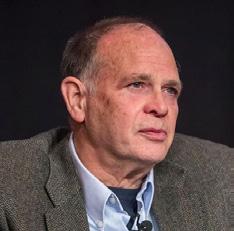
Michael Sims, founder of Ceres Robotics, secured a NASA contract to develop a 50-kW solar power source for lunar missions, supporting habitats, rovers, and construction systems. With Fellows Michael D’Angelo, Emeline Paat-Dahlstrom, Eric Dahlstrom, and Udit Shah also on the Ceres Robotics team, their innovative approach, including the C-Tower truss-mast, aims to extend mission life, maximise scientific output, and reduce costs for future lunar exploration.
Anne-Marie Brook and the Human Rights Measurement Initiative registered the ‘Rights Tracker’ as a Digital Public Good. The Rights Tracker provides free, country-level human rights data, and is the second project in Aotearoa NZ to be recognised as a Digital Public Good (DPG) – the first was Eco-Index with Nathaniel Calhoun.
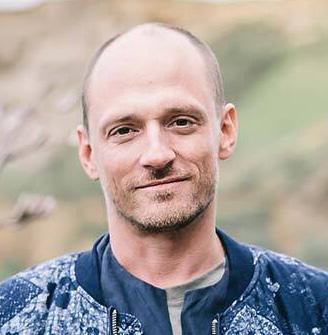
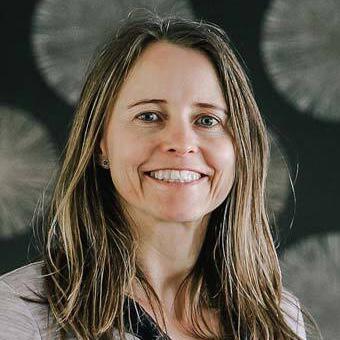
Nathaniel Calhoun and the Eco-Index team launched the interactive ‘Ecosystem Restoration Map,’ in Aotearoa NZ. The map offers data layers, including heat maps and environmental economics, to guide efforts in restoring at least 15% of natural ecosystem cover in each catchment.


Joanne McEachen, Emeline Paat-Dahlstrom, and Eric Dahlstrom were recipients of Kea World Class New Zealand Awards. Joanne was recognised for her transformative work in education through The Learner First. Emeline and Eric were recognised for promoting Aotearoa NZ's role in aerospace innovation through their non-profit consultancy, SpaceBase.

Jagmeet Lamba, founder of Certa, raised US$35 million in a Series B funding round. Certa streamlines end-to-end procurement for faster business collaboration, monitoring millions of partners across 120 countries, with plans to expand into the EU and Asia.


Sasha Lockley and Money Sweetspot won the ‘Biggest Impact on Financial Health’ award at the Global Financial Wellbeing Awards, recognising her role in helping people navigate financial challenges, and disrupting predatory lending. Major banks have approached Sasha to learn more about Money Sweetspot’s lending ethos and financial education programme.
Conor Colwell, co-founder of Liquidstar, addressed energy access challenges in remote African and Asian communities with ‘Waypoints’ – portable hubs providing electricity, water, internet, and data storage. These ‘civilisation in a box’ units are building a decentralised network of resilient infrastructure, with potential for disaster response and off-grid living in Aotearoa NZ.
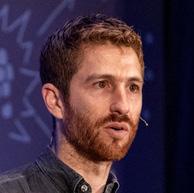

Tristan Harris, president and co-founder of the Centre for Humane Technology, won the 2023 Tällberg-SNF-Eliasson Global Leadership Prize. Tristan was awarded “for his advocacy efforts to align disruptive technology with humanity’s best interests.” The prize annually honours leaders who are addressing 21st-century challenges innovatively, with global impact rooted in universal values.
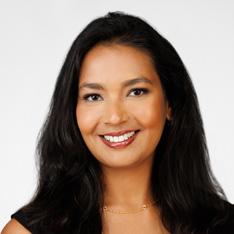

Dipanwita Das and Richard Graves's Sorcero was recognised as one of Fast Company’s Most Innovative Companies in the Small and Mighty category, highlighting its groundbreaking work in revolutionising patient care through biomedical AI technology. Sorcero provides accessible summaries of complex medical research, supporting data-driven decision-making for patients. Dipanwita was also named in The Washington Business Journal’s prestigious ‘40 under 40 list’.

Adam Grosser from UP.Partners, hosted the annual UP.Summit in Dallas, Texas, bringing together top innovators and industry leaders, representing over US$1 trillion in investable capital. The goal is to drive transformation across cars, planes, drones, rockets, and energy systems, accelerating the shift toward a more connected global mobility ecosystem.
Yasmine El Baggari provided critical relief in Morocco following the September 2023 earthquake, teaming up with World Central Kitchen to deliver meals and assist in evacuating those needing urgent medical care. She also launched the ‘Rebuild Hope’ programme, delivering immediate aid, rebuilding lives, and empowering communities to enhance resilience against future disasters.

Jonathan Chang was appointed President Director of Fintopia Indonesia, a global micro-lending firm which has disbursed over US$2 billion in unsecured loans to create access to equitable financial services for the unbanked and underbanked.
Hazel Heal, co-founder of Global Health New Zealand, led efforts to help Niue become the first country to eliminate viral hepatitis. Through the Cure a Country initiative, Hazel provided medication and medical advice to combat hepatitis in Niue. Supported by Fellows Kaye Maree Dunn and Hunter Weeks, who documented the project.
To find out more about EHF Fellows, visit ehf.org/fellow-directory


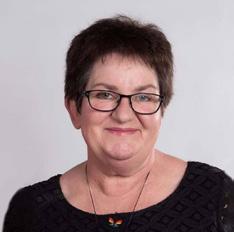
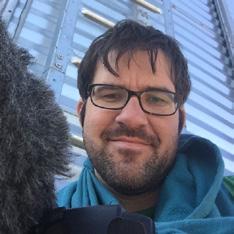

Connecting and supporting Fellows on their impact journey was the core focus for EHF in 2023/24.
The EHF team welcomed 60 Fellows, including 52 international Fellows at our final EHF Welcome Experience, and provided pathways for many more looking to settle in Aotearoa NZ and build new ventures, mentor and invest in founders, serve communities, and tackle social and environmental challenges. Curating a series of powerful convenings and partnered events, EHF connected Fellows with a wide range of sectors and regions, NZ’s innovation ecosystem, and each other.
In September 2023, EHF delivered on and concluded its contractual commitments with the government, marking the 7-year anniversary since the Global Impact Visa pilot began. Moving beyond a visa programme, EHF shifted its focus to building an engaged and activated Fellowship that can continue to create impact. The following are highlights from the year.

Upskilling cultural understanding of Aotearoa NZ and providing the tools and processes to help Fellows integrate and connect, including:
• Hosting the final Welcome Experience in May 2023, welcoming 60 Fellows to the Fellowship, where they were gifted their name Ngaa Reo Wheko by Te Āti Awa Taranaki Whānui. This was the final official Welcome Experience, which saw Fellows participate in a three-day immersive experience focused on whakawhanaungatanga (building relationships) and exploring Aotearoa NZ as a basecamp for global impact. Partnering with Te Āti Awa Taranaki Whānui, the EHF team supported Fellows to build meaningful connections and develop their understanding of te ao Māori and Aotearoa NZ as a bi-cultural nation.
• Elevating Fellows’ Māori cultural competency and understanding of Te Tiriti o Waitangi by providing two online learning sessions on: ‘Tiriti Overview’ with Matua Bill Hamilton (Ngā Rauru, Ngāti Raukawa, Ngāti Kahungungu), and ‘Tiriti breaches and redress’ with Sharn Maree (Ngāpuhi). As Tangata Tiriti (People of the Treaty), EHF is committed to integrating learning and understanding of Te Tiriti o Waitangi as foundational knowledge for Fellows.
• Introducing a new EHF Online Hub to provide Fellows with a centralised place to find information about Aotearoa NZ. This includes links to key resources, connections to local organisations, ecosystem events, EHF news and spaces for Fellows to collaborate.
• Providing Fellows with visa support via online group Q&As and 1:1 support.
• Facilitating 10 Permanent Residence Visa (PRV) Support Letters from EHF for Fellows to include in their permanent residence applications. Fellows’ impact activity in Aotearoa NZ is reviewed and assessed against an impact criteria to determine whether a Support Letter is provided. EHF is continuing to support the 160 remaining Fellows requiring their Support Letters during 2024/25 and 2025/26.
Facilitating connections across the Fellowship and the Aotearoa NZ innovation ecosystem so that Fellows can identify opportunities and create meaningful impact, including:
• Hosting the Impact Springboard, a free online multi-day event that connected Fellows with NZ's innovation ecosystem leaders around critical challenges facing Aotearoa NZ. More than 200 participants engaged across five sessions providing insight into Fellows’ transformative ventures and projects, opportunities for Kiwi businesses to ‘go global’, and international expertise on how Aotearoa NZ can transition to a low-carbon economy. Ten Fellow-only sessions were also held for Fellows to dive deeper into understanding the Aotearoa NZ context, including economic environment, Māori economy, and support for settling, doing business and investing here.
• Developing EHF Purpose Communities, connecting Fellows around shared areas of impact to coordinate, collaborate, and cross-pollinate on projects and ideas. This included support for the existing EHF Climate and Nature Action Group, and for new and emerging groups such as Pacific Partnerships, and Philanthropy in Aotearoa NZ.
• Co-ordinating in-person stakeholder and regional meetups, working with partners such as Tātaki Auckland Unlimited and Kāpiti Coast District Council to host in-person Business Days and networking events.
• Partnering with Angel Association NZ to support Fellows’ hosting seven NZ companies in Denver. This was an opportunity for Kiwi founders to form connections and better understand their value proposition for the US market.
• Connecting Fellows with NZTE to support New Zealand’s international investment attraction programme. Fellows’ hosted and engaged in the US with the NZ ambassador, and the Minister of Science, Innovation and Technology.
• Showcasing Fellows’ thought leadership to support the NZ ecosystem by hosting 11 online ‘Live Sessions’ for NZ businesses and industries, including expert local and global insights on critical topics such as Web3, Generative AI, and early-stage fundraising.
• Curating a conversation on Space and Aerospace, bringing together Fellows and industry leaders to share expertise and opportunities for Aotearoa NZ to lead globally sustainable space and aerospace sectors.
Demonstrating the value Fellows are contributing to Aotearoa and around the world by:
• Introducing monthly themed ‘Spotlights’ to amplify and showcase Fellows’ ventures, NZ partnerships and thought leadership across a range of critical sectors and impact areas.
• Advocating with the Government for a refreshed global talent programme to attract innovators, entrepreneurs and investors to Aotearoa NZ. This included briefings and case studies demonstrating Fellows’ economic, social and environmental impact, and raising awareness of expertise in high-value sectors.
• Celebrating Fellows’ impact and achievements through 11 Impact Snapshots, shared via EHF website and social media channels, recognising Fellows’ awards, successes and projects.
• Sharing Fellows’ impact and EHF news with stakeholders and the innovation ecosystem in quarterly newsletter updates from the Chief Executive.
The EHF team also progressed and introduced key foundations to support and enable a sustainable future for the organisation and the Fellowship, including:
• Introducing EHF Kawa & Tikanga* – shared protocols and ways of working for Fellows, the EHF Board and team, created in partnership with Te Āti Awa and te Kāhui Māori.
• Developing and running a successful Annual Donor Campaign and planning the introduction of a new annual Fellowship Fee* as part of the transition to an independent business model for EHF.
*Introduced to the Fellowship in May 2024.
In July 2023, EHF piloted the first Mission Studio convening, followed by a series of online Discovery Sessions. The in-person convening brought together over 35 leaders in nature restoration, including Te Āti Awa, EHF Fellows, NZ public and private sector leads, systems thinkers, and entrepreneurs to explore system changes conducive for nature restoration in Aotearoa NZ. The convening was an opportunity to align, identify levers to achieve change at scale, and commit to collective action.
Sensemaking from the convening shaped the subsequent online Mission Studio Discovery Sessions. Focusing on te ao Māori (Māori worldview) as fundamental to nature restoration, the first session explored the critical need for mindset shifts – to recognise mātauranga Māori (Māori knowledge) – and that nature must have a ‘voice’ at the table. There was a shared desire to trial ‘levers for change’, which included regenerative finance models that recognise different value models; and new value/impact

The Mission Studio first convening participants, July 2023.
measures including tools, evidence and data that demonstrates impact.
The Discovery Sessions focused on projects in Aotearoa NZ grounded in these areas, sharing actual challenges and opportunities, which led to in-depth exploration and early-stage collaborations.
2023 / 2024

11
Philanthropy & Fundraising in NZ
Security and privacy – AI
Regenerative Lessons for Housing
Support for NZ Women Founders
Web3
Generative AI in NZ
Decentralised Identity Management
Building Connections – NZ & Southeast Asia
Demystifying Early-Stage Fundraising
Gaming & AI
Inclusive & Collaborative Workplaces
60
Fellows welcomed
130 + live sessions on
15
Fellows granted permanent residence after creating significant impact for Aotearoa NZ
This free, online event held over four days connected NZ’s innovation ecosystem with Fellows, Hillary Laureates and NZ leaders around critical challenges facing Aotearoa NZ in the final Welcome Experience (May 2023), including 52 international Fellows
Fellows featured across 11 Impact Snapshots

7
In-person ecosystem connection events

2
Te Tiriti o Waitangi training sessions for Fellows
5 Aotearoa NZ innovation ecosystem Impact Springboard sessions for the i
11
10
Impact Springboard sessions to support Fellows
13
Fellow information & support sessions ‘Impact in Action’ Stories on Fellows

Focused on helping Fellows understand the Aotearoa NZ context, including economic environment, Māori economy, as well as support for settling, doing business and investing in Aotearoa NZ
COMMITMENT
Induction to NZ – Welcome Experience
STATUS
2023/24
Achieved • Final 3-day Welcome Experience in May, including a pōhiri (Waiwhetū Marae) by Te Āti Awa
• Integration of Te Ao Māori into programme including whakawhanaungatanga, te ao Māori, and Tikanga Māori
• Online two-part Te Tiriti training with digital resources and recommended reading provided
• Launch of a new online resource hub providing all Fellows links to information about NZ, links to support and resources, connections to NZ organisations
• Support for purpose communities, connecting Fellows to other like-minded Fellows around purpose and impact (e.g. Pacific Partnerships; Climate & Nature Action)
Run programmes to support better integration into NZ and regions
Support Fellows to actively engage with NZ’s entrepreneurship ecosystem
Achieved
• May Fellows’ hui to connect all Fellows, plus other Fellow-led meet-ups in Auckland, Wellington, Christchurch, Tasman/Marlborough
• Tātaki Auckland Unlimited and Kāpiti Council business days/hosting events, and Fellows introduced to specific sub-sectors and organisations – e.g. Climate, government
• Partnered with Angel Association NZ and Fellows to host seven NZ companies in Austin/Denver to hear from startups and innovation experts on raising capital and US market entry
• Partnered with NZTE to host meetings/engagement in the US with the NZ ambassador, potential investors, NZ Cleantech innovators, and Ministerial engagement
• Impact Springboard online sessions (Feb) to update Fellows on economic/political environment, Māori Economy, and NZ Tax system and NZ/US tax law
• Curated online sessions with Fellows/NZ leaders
• Introduction of monthly Spotlights to showcase Fellows and transformative ventures and bring NZ leaders/Fellows together around critical issues/ opportunities facing Aotearoa NZ
• Support of key local events including promoting and supporting Fellow participation in TechWeek
• 11 x Live Sessions online around Web3, workplace learning and cultural transformation, decentralised ID management, regenerative thinking in housing, and AI security
COMMITMENT
Code of Conduct
STATUS 2023/24
In progress
Support Fellows with Visas: Global Impact Visa (GIV) process; letter of support for Permanent Residence (PRV).
Note: GIV pilot programme concluded.
Managing media and significant public comms in partnership with MBIE
Creation of a self-funded delivery model
Achieved / Ongoing
• EHF’s Event Code of Conduct including Tikanga Māori distributed and actively applied at the May Welcome Experience
• Online Platform Community Rules continued on all online platforms
• Developed EHF Kawa & Tikanga – protocols and ways of working for Fellows, Board and team, in partnership with Te Āti Awa and Te Kāhui Māori
• 1x PRV Support Letter round completed in April, with panel review, with 10 Support Letters issued to Fellows
• GIV/PRV support provided to Fellows via online group Q&As, 1:1 support, and email
Achieved Engaged with the Government on the issues of the NZ/US tax regime as an emerging issue of reputational importance to talent attraction
In progress
• Piloted the first Mission Studio convening and discovery session. Tested this as a fundraising proposition. This initiative was put on hold in September 2023
• Ran a successful Annual Donor campaign
• Prepared to launch a new annual Fellowship Fee (launch May 2024)
COMMITMENT
Performance monitoring
STATUS 2023/24
Achieved
• Delivered to MBIE final Q1 and Q2 reports and final audited reports and financial update
• Delivery FY23/24 strategic plan to MBIE
• Delivered FY22/23 EHF impact survey results
• Delivered FY22/23 Annual Report
• Delivered EHF FY23/24 audited results
To celebrate and support two extraordinary groups – Laureates and Fellows – the Hillary Institute and EHF have a unified Board and management structure to ensure close alignment between the two organisations.
For biographies, visit www.hillaryinstitute.com
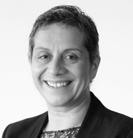
ANNA KOMINIK (Chair)
Hillary Institute Trustee / EHF Director

ANDREW HOPPIN
Hillary Institute Trustee / EHF Director / EHF Fellow

CAMIA YOUNG
Hillary Institute Trustee / EHF Director

IAN SHORT*
Hillary Institute Trustee / EHF Director
*Ian Short stepped down from the Board on 31 July, 2024.

MARK PRAIN Institute Founder

DINNIE MOEAHU
Hillary Institute Trustee / EHF Director

ROSALIE NELSON Chief Executive, Hillary Institute and EHF
The Hillary Institute and EHF is underpinned by a passionate core team, with specialist support and services. They work in service to Laureates and Fellows, believe in the mission of celebrating and supporting transformative global leaders, with Aotearoa NZ as a basecamp for global impact. The team is committed to recognising and honouring their responsibility as Tangata Tiriti (People of Treaty) and to model the pioneering spirit and values of Sir Edmund Hillary.
To meet the small but mighty team, visit www.ehf.org/about-ehf

RT HON HELEN CLARK
Former Administrator, United Nations Development Programme (UNDP), New York
3 Term Prime Minister of New Zealand (1999–2008)

PAUL ATKINS (NZ)

JEREMY LEGGETT (UK)
Hillary Laureate

JIM ARMSTRONG (US)

PEGGY LIU (China)
Hillary Laureate / EHF Fellow

DR HELEN SYKES (Australia)
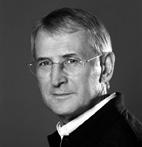
MANFRED KETS DE VRIES (Europe)

MATT PETERSEN (US) EHF Fellow

WALKER (UK)
The Board, Founder, and Chief Executive would like to thank and respectfully acknowledge the Hillary Institute’s Patron, financial supporters, and for their years of Laureate selection work, the Hillary Summit Governors. We also pay tribute to those who have previously served as Governors and Trustees.
Jan Cameron
Joan Shapiro (US), Former Governor
Anake Goodall (NZ), Former Chair
Hon David Caygill (NZ), Founding Chair
Ta (Sir) Mark Solomon (NZ – Ngāi Tahu), Founding Governor
Paul Hawken (US), Founding Governor
Kevin Roberts (US/NZ), Former Governor
Bridget Cullerton (Belize), Founding Governor
Ray Anderson (US), Founding Governor
Dr. Rajendra Pachauri (India), Founding Governor
Christopher Doig (NZ), Founding Trustee

2009
Jeremy Leggett (UK)
The Hillary Institute and EHF Community of remarkable individuals from around the world.

2010
Peggy Liu (China)

2016
Tim Jackson (UK)

2011
Aimée Christensen (US)

2017
Johan Rockström (Sweden)

2012
Te Beretitenti (President)
Anote Tong (Kiribati)
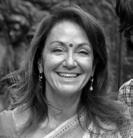
2018
Meagan Fallone (India)
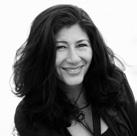
2013
Atossa Soltani (Amazon Watch)

2020 Christiana Figueres (Costa Rica)

2014
Mike Brune (US)

2022
Vanessa Nakate (Uganda)
The Edmund Hillary Fellowship (EHF) consists of world-class innovators, technologists, creatives, investors, entrepreneurs, educators, and systems designers, who believe New Zealand is a basecamp for a better world. Fellows span a range of high-value sectors seeking to make a meaningful impact in Aotearoa with projects, ventures and system-change with global application – from business and economic growth to climate change to social inequities.
The Board and team are extremely grateful to all those who have generously supported EHF at various stages of the journey. We would like to formally recognise EHF’s 2023/24 Anchor Donors, including the four donors who prefer not to be named.
Adam Grosser, Akshay Kothari, Andrew Hoppin, Chuck Chai, Oliver Niedermaier, Rajesh Kurup, Satya Dontamsetti
You can help EHF support Fellows partner with Aotearoa to find and build solutions to our toughest challenges, by donating today: ehf.org/donate
The Hillary Institute’s purpose is to recognise transformative leaders midcareer that are making outstanding contributions towards improving the human condition.
The Hillary Institute is a NZ charitable trust launched on 22nd January 2007. It is the 100% shareholder of the Edmund HIllary Fellowship (EHF), a not-forprofit limited liability company with charitable status.
The Hillary Institute was founded by Mark Prain, launched by Sir Edmund Hillary, with the Rt Hon Helen Clark, former Prime Minister for Aotearoa NZ, as Patron, and David Caygill, former cabinet minister, as the founding Board Chair.
Charities Number: CC38369
Contact: leaders@hillaryinstitute.org.nz Visit: www.hillaryinstitute.com
The Edmund Hillary Fellowship (EHF) was established as a social enterprise to have a positive impact on the world, supporting and advancing the purposes of its parent organisation, the Hillary Institute. EHF’s focus is on Aotearoa inspiring global leadership and solutions for future generations, anchored in the principles of Te Tiriti o Waitangi (The Treaty of Waitangi).
In March 2022, EHF became a limited liability company with charitable status. EHF was established in partnership with Immigration NZ to run a pilot Global Impact Visa programme to attract visionary entrepreneurs, investors and systems designers to create positive global impact from New Zealand.
Charities Number: CC60107
Registration Number: 6112633
Contact: team@ehf.org Visit: www.ehf.org
A digital version of this Annual Report 2023/24 can be found at www.hillaryinstitute.com and www.ehf.org along with the accompanying Financial Statements for 2023/24 (audited by Moore Markhams, Wellington Audit).

www.hillaryinstitute.com www.ehf.org